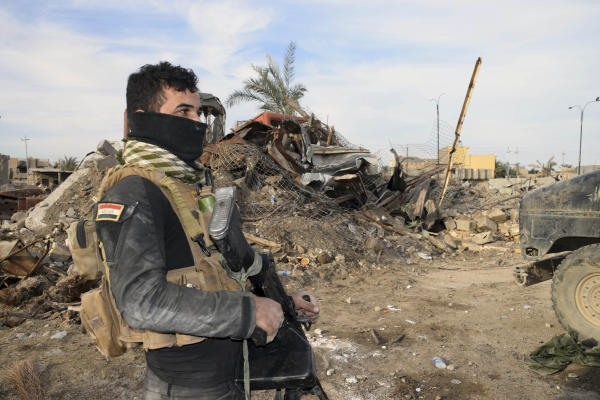BAGHDAD, Jan 10 (Reuters) – ISIS militants left Ramadi’s streets and buildings boobytrapped with bombs, hampering efforts to rebuild the city two weeks after Iraq’s elite counter-terrorism forces claimed victory against the militant group there, officials said.
Ramadi, the capital of Anbar province, was touted as the first major success for Iraq’s army since it collapsed in the face of ISIS’ lightning advance across the country’s north and west 18 months ago.
The militants have been pushed to Ramadi’s eastern suburbs, but almost all of the city, which was battered by U.S.-led air strikes against ISIS, remains off-limits to its nearly half a million displaced residents, most of whom fled before the army advance.
“Most areas are now under the security forces’ control,” Anbar governor Sohaib al-Rawi said on Saturday at a temporary government complex southeast of the city.
“Most of the streets in Ramadi are mined with explosives so it requires large efforts and expertise,” he said.
Specialised bomb disposal teams from the police and civil defence force would begin work “soon”, he said.
The counter-terrorism forces which spearheaded the city’s recapture are securing only main streets and tactically important buildings, security sources said.
They have built up earth banks at the entrance of central neighbourhoods deemed clear of militants but still laden with explosives, and marked buildings’ exteriors as “mined”, the sources added.
Snipers have also slowed progress. Iraqi forces clear them by calling in devastating airstrikes – more than 55 in the past two weeks, according to the coalition.
On Saturday they routed militants from the Mal’ab neighbourhood, adding the last major district in Ramadi’s city centre to their control, said commander Lieutenant General Abdul Ghani al-Assadi.
Iraqi forces withdrew from Ramadi in May last year, allowing ISIS to take control, the group’s biggest gain since sweeping across the Syrian border a year earlier and declaring it was establishing a caliphate.
ISIS fighters are still holed up in a roughly 10 kilometre stretch east towards Husaiba al-Sharqiya using agricultural lands to evade detection, security sources said. It could take at least 10 days to clear those areas.

